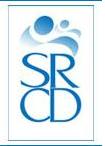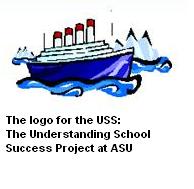Making a Connection Between Social Behaviors in Preschool and Kindergarten Success
Blog Post
April 27, 2009

Can a preschooler's ability to play well with his classmates tell us about something about his chances for success in kindergarten? New data from Arizona State University provides some hints in that direction. The research has provided some of the first evidence to link academic skills to positive social behaviors at such young ages.
Children who interacted well with their peers in preschool -- sharing, acting kindly, asking them to join in games -- were more likely to exhibit behaviors in kindergarten that would help them achieve, such as being able to listen and follow a teacher's directions. They also showed "engagement" in kindergarten or, put more plainly, they seemed interested in school and wanted to be there.
"These social experiences are very important," said Laura Hanish, associate professor of family and human development at Arizona State, who is helping to lead the study. "They give children a sense of how to interact with peers, they give children a sense of how to regulate and manage their emotional impulses. These things are all really important to doing well in school."
Hanish and her colleagues also found that, in preschool, children who play well with their peers are more likely to do well in preschool teachers' assessments of their math and literacy skills, as well as their ability to pay attention and follow instructions.
Contrary to what some researchers expected, however, the data did not show any significant link between social behaviors in preschool and literacy and math skills in kindergarten.
The associations were discussed in a poster presented by Laura K. Clary, a doctoral student in the School of Social and Family Dynamics at Arizona State, during the biennial meeting of the Society for Research in Child Development.
 Researchers analyzed teachers' evaluations of 169 children who recently attended Head Start and kindergarten in Phoenix. The work is part of the Understanding School Success Project, a five-year project funded by the National Institute of Child Health and Human Development to study the effects of children's relationships on their transition to formal schooling. In addition to Hanish, Carol Lynn Martin and Richard Fabes are leading the effort.
Researchers analyzed teachers' evaluations of 169 children who recently attended Head Start and kindergarten in Phoenix. The work is part of the Understanding School Success Project, a five-year project funded by the National Institute of Child Health and Human Development to study the effects of children's relationships on their transition to formal schooling. In addition to Hanish, Carol Lynn Martin and Richard Fabes are leading the effort.
The data presented this month have not yet been fully vetted and published; early outcomes from the project, however, have been described in recent peer-reviewed articles.
The full USS project followed three waves of children moving through Head Start and kindergarten, and researchers collected data from their teachers at the end of each year. The children were predominantly Latino and from families in which parents make less than $30,000 a year. Fifty-nine percent come from homes in which Spanish is the primary language.
The project is built, in part, on the ideas of Gary Ladd, an education and psychology professor at Arizona State who has written widely on how children's and adolescents' social interactions affect their experiences in school.
Researchers said the new findings, though still preliminary, appear to point to the importance of facilitating good relationships between children, giving them time to play together and learn skills for relating with their peers.
"People are, rightly so, focused on academic skills," Clary said. "But we can see that social skills and interactions with peers really contribute to academic success."
Questions still linger, however, and more data need to be analyzed. For example, researchers are puzzling over why positive social behavior in preschool was linked to academic skills in preschool, to children's engagement in kindergarten, and to good school behavior in kindergarten (such as listening to the teacher), and yet was not significantly related to academic skills in kindergarten.
One explanation, Clary said, might come from the way researchers controlled for variables. In analyzing the data for kindergarten, she explained, researchers controlled for children's academic preschool records, trying to tease out exactly what was happening in kindergarten above and beyond the preschool experience. So it is possible, Clary said, that the children with positive social behavior had already made such strong gains in math and literacy by the end of preschool that further academic gains in kindergarten did not register in their data.
Other data points were particularly heartening, Hanish said, because they provide some signs of the benefits that can come when preschool teachers help classmates play together and interact in positive ways. Preschoolers who played well with their peers but had moments of social disruption - such as those who had temper tantrums - showed an ability to pick up more school-behavior skills in preschool than their classmates who were both disruptive and had trouble playing with their peers. It was as if positive peer interactions tempered the impact of the outbursts. "The positive skills helped to counteract the negative effects," she said.